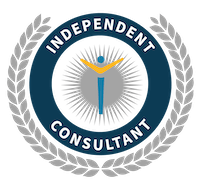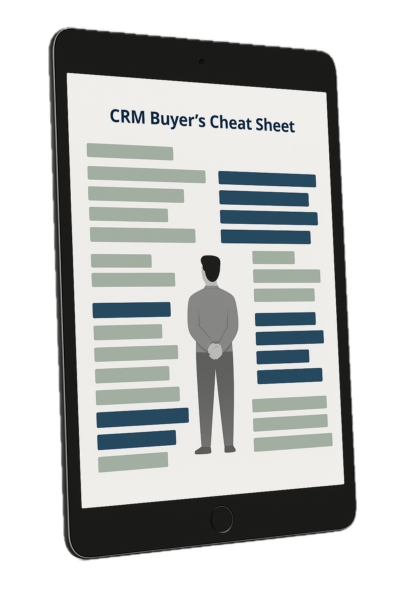Having CRM, using CRM, and being happy with CRM are all very different, yet related, topics. One of the hardest aspects of a CRM system to quantify is user happiness–how do you measure satisfaction? You could rely solely on internet reviews, but there’s a lot of marketing spin out there. Those reviews may not give you an accurate picture of what “Bob in sales” really thinks of the system.
That can make it difficult for you to measure how different CRM systems stack up in terms of user satisfaction. Fortunately, G2 Crowd is an industry leader in gathering and collating objective reviews of the various CRM systems out there. Using data gleaned from G2 Crowd, we’ll take a look at how three leading enterprise CRM vendors measure up in terms of user satisfaction.
Note: Data presented below was collected on April 23, 2014 and is very likely to change over time as new reviews and ratings are submitted to the site.
Salesforce
According to our 2013 Market Share Survey, Salesforce has 39.8% of the CRM market. A quick survey on G2 Crowd shows that users like it because of its easy integration with other products, and the main criticisms are about pricing
Crowd Stats
- Overall satisfaction rating: Salesforce earns a 4.2 out of 5.
- Number of user reviews: There are currently 364 user reviews.
- Percentage of positive reviews: 91% of the reviews are a 4 (of 5) or higher.
User Satisfaction Ratings
G2 Crowd breaks down their overall satisfaction ratings into convenient categories. Here’s how Salesforce fares in those categories:
- Meets Requirements: 8.6/10
- Ease of Use: 8.3/10
- Ease of Setup: 7.8/10
- Ease of Admin: 8.1/10
- Quality of Support: 7.7/10
- Ease of Doing Business With: 8.1/10
As you can see, Salesforce earns high marks across the board. Complaints about pricing should be taken into account, but you should also remember that you get what you pay for.
Microsoft Dynamics CRM
Our 2013 Market Share Survey shows Microsoft Dynamics CRM with 20% of the CRM market. Following a quick review of the G2 crowd, it seems that people like Dynamics for its easy integration with other Microsoft products, and struggle with what they consider to be limited reporting functionality.
Crowd Stats
- Overall satisfaction rating: Dynamics CRM gets an overall rating of 3.5 out of 5.
- Number of user reviews: Presently, there are 59 user reviews.
- Percentage of positive reviews: 67% of users give Dynamics a 4 (of 5) or higher.
User Satisfaction Ratings
Here’s how Microsoft Dynamics CRM stacks up in the individual satisfaction categories:
- Meets Requirements: 8.3/10
- Ease of Use: 7.6/10
- Ease of Setup: 7.2/10
- Ease of Admin: 7.8/10
- Quality of Support: 7.8/10
- Ease of Doing Business With: 8.1/10
While Dynamics doesn’t score as high as Salesforce, it’s important to note that there are far fewer reviews of Dynamics at this time. The complaints about tedious tasks are likely solvable using workflow automation.
SugarCRM
The last of the big-three enterprise CRM vendors we’ll cover, SugarCRM captured 1.6% of the market share in our 2013 survey. Users on G2 Crowd like SugarCRM for its easy customization, and most criticism seems related to the system’s user interface.
Crowd Stats
- Overall satisfaction rating: SugarCRM also scores a 3.5 out of 5.
- Number of user reviews: At writing, there were 36 user reviews.
- Percentage of positive reviews: 61% of those reviews were a 4 (of 5) or above.
User Satisfaction Ratings
In the user satisfaction categories, SugarCRM’s scores are:
- Meets Requirements: 7.4/10
- Ease of Use: 7.3/10
- Ease of Setup: 6.9/10
- Ease of Admin: 6.9/10
- Quality of Support: 7.2/10
- Ease of Doing Business With: 7.4/10
Like Dynamics, SugarCRM doesn’t have a large volume of reviews on G2 Crowd at this time. Since people are more likely to complain than compliment, it’s possible that these numbers reflect a negative bias on the part of some of the reviewers.
The Importance of User Happiness
You want to be happy with your CRM system, and you want your employees to be happy with it as well. If they’re not, then user adoption can become a real concern. So, how do satisfaction numbers from a website help you?
By looking at the things people like and don’t like about a particular system, you can relate those feelings back to your needs. Some reviewers had problems integrating Office products. If you don’t use Office products, that’s not an issue for you. Some people had success with custom fields– if custom fields are crucial to your implementation, you may want to consider those systems.
The great thing about crowd-sourced data is that it provides specific information based on real-world experiences with different CRM systems. By relating your needs to those experiences, you can get a useful predictor of potential satisfaction with a particular CRM system.





